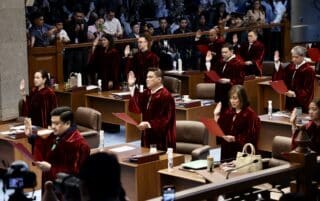Nearly three out of four Philippine exporters and importers continue to reel from non-tariff measures (NTMs), which have largely hampered their capability to further expand their operations in strategic markets abroad.
The incidence of companies suffering from such challenges was reportedly one of the highest rates seen by the International Trade Centre (ITC), compared to the other surveys that it had also conducted in the region.
According to the ITC, it polled 1,150 local companies, of which about three-fourths reported that they continued to face difficulties in complying with foreign technical requirements and conformity assessment procedures—such as fumigation and labelling regulations or product certification and testing—which were often stricter in the developed countries to which they were exporting.
The agency also reported that “Filipino exporters experience NTMs related to rules of origin for which the delivery of related certificates often generates unnecessary costs and delays in domestic institutions.”
“Another difficulty faced by exporters is national export-clearance processes, which occur in local administrations, and mainly concern high fees and administrative burdens. Interviewed companies mentioned 50 public and private institutions involved in NTM-related procedures, suggesting a heavy administrative cost of compliance,” the ITC disclosed.
The NTM program of the ITC, a joint agency of the World Trade Organization (WTO) and the United Nations (UN), ensures that the concerns of SMEs about regulatory and procedural trade obstacles are brought to the attention of policymakers and other stakeholders at the national, regional and multilateral level, enabling them to take concrete actions to address these issues.
For its part, the Department of Trade and Industry (DTI) noted that the different strategies it had laid out under the Philippine Export Development Plan (PEDP) 2015-2017 would help address the concerns of local companies.
“DTI has been in the forefront of streamlining processes for our exporters and importers. For the past six months, we have been active in addressing exporters’ concern specifically to shorten the processing time and administrative requirements,” said Trade Undersecretary Nora K. Terrado.


